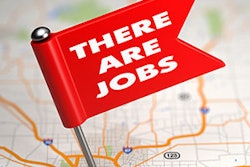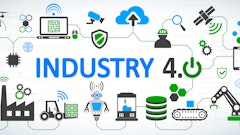
Let’s face it, ask a Millennial (the generation born between 1985 and 2004) to name his or her top five exciting and rewarding careers, and there is a strong chance that supply chain professional isn’t going to be on that list. Instead, the response will read something along the lines of: tech startup founder, urban farmer, non-profit professional, coder or even financial advisor.
This is bad news for the logistics industry, as supply chains necessitate employees and leaders that are adaptive, flexible and innovative—the very traits, in fact, that are often attributed to Millennials.
It is an issue of critical importance to our industry as the Baby Boomers, who currently make up the majority of supply chain management positions, near retirement. At the same time, Millennials are projected to become the largest living generation in the U.S. by 2025, at which point they will make up about 75 percent of the workforce. While 2025 may seem a long way off, remember that these are potential entry-level employees who need to be hired, trained and mentored before they can rise to the ranks of upper management—and that takes time.
So, how do we make the supply chain more appealing to this demographic? We have to sell them on the challenges and advantages of the job, rather than the stability of a long-term career. After all, this generation graduated college with record amounts of student debt in the face of a recession surrounded by stories of their peers who seemingly struck it rich working for the Instagrams, Ubers and Googles of the world. Their job-seeking focus likely is not centered on a long, steady and predictable career with a consistent paycheck and a comfortable retirement. Beyond big money, Millennials are looking for a job that is rewarding and flexible. The question is, how can the supply chain industry use this to its advantage and draw the next generation in?
There is no one simple solution when it comes to successfully recruiting Millennials into the logistics industry. Instead, human resource (HR) departments should focus on a mix of the following:
Rewarding Challenges
When describing logistics positions, focus on the opportunities for candidates to think for themselves, and actively solve an array of problems that continuously emerge, change and grow. This generation was raised on PlayStation, YouTube and the Internet: They will not be content to do the same tasks day in and day out, and will find the process of problem-solving and finding new ways to make systems more efficient and eco-friendly both intriguing and rewarding. Similarly, they need to know that the work they are doing is part of a bigger picture rather than just another line item in a quarterly report. Taking the time to explain how their role fits into a company’s operations as a whole, and the difference they can make day to day, can go a long way in terms of employee retention.
A Strong Brand
Millennials today want a company they can be proud of. Environmental and social good initiatives that are woven into the very management structure of a company can go a long way in providing this. Be sure to highlight new programs including upcoming pilot initiatives, ongoing sustainability practices and industry certifications that your brand is involved in. Promote such things both externally to help with attracting new talent, as well as internally to keep employees informed of the good your brand is doing on a daily basis.
Flexibility
Just as a good supply chain needs to be flexible to easily adapt to changes and unexpected events, so must your policies. Millennials assign more importance to a healthy work/life integration than any generation before them. Millennials (generally speaking, of course) are used to multi-tasking and living with a phone on their person at all times. Gone are the days of nine to five, as Millennials don’t blink an eye at working after they leave the office. On the flip side, they do expect the same flexibility from the company in return. If they need to go to the doctor in the middle of the day, they expect the company to be open to short trips outside of the office.
Defined Career Growth
The majority of the Millennial workforce—as with most of us—is not looking to find a comfortable position in a company and stay there, content only with yearly structured raises. Instead, Millennials are hungry to develop their careers in as short of a time period as possible. In response to this, mentorship programs that spell out the steps needed, as well as the path to career growth, can go a long way in terms of employee retention. Showing them the potential for internal growth can help stave off an attractive offer from a recruiter or competitor.
Technology
Millennials’ entire lives revolve around smart phones, wearables and cutting-edge technology, so they expect to receive the best available tech when it comes to their tools for work. As an added benefit, these employees are always connected and always on, therefore the tech solutions they desire need to have that same emphasis on connectivity and accessibility. Making sure the chief information officer (CIO) and information technology (IT) teams recognize these needs and wishes, and respond with either bring-your-own-device (BYOD) policies or provide up-to-date computers and phones, can directly impact employee happiness and, in turn, help foster a workforce that is more satisfied with their jobs, thus remaining with the company longer, and more apt to refer potential new hires.
Collaboration
Millennials were raised in a culture of collaboration. From kindergarten through higher education, group work was the norm in ways unseen just a few decades ago. Due to this, the Millennial workforce will expect those who work with them to be equally collaborative, and willing to freely share ideas and workloads that some may not see as fitting in the typical management structure.
In addition, they were raised to know their opinions and questions matter, and therefore, expect to be heard and to be able to question the status quo. In this same vein, the answer “because that’s how we’ve always done things” can be kryptonite to a Millennial’s drive to work. Being sure to train staff of all ages in successful collaboration will not only make Millennials feel more accepted at work, but can also lead to more fluid and innovative work environments.
Perks
The potential hires you are looking for were raised on stories about tech industry jobs with great perks and benefits. Paid vacation, a summer company picnic and a basic 401(k) plan are not going to grab the attention of new talent. Instead, think of innovative ways to structure your benefits, such as offering flexible scheduling policies, as well as health, dental and vision and matching 401K plans. In this same vein, 10 days of paid time off (PTO) a year and a few sick days simply aren’t going to cut it. While this may seem like a big outlay, imagine what happens five to 10 years down the line when your core staff is retiring and you have no replacements.
Focus on the Good
This is a very exciting time for our industry! The benefits of highly detailed systems modeling, the opportunities provided by connected devices in the Internet of Things, and the ability to manage and manipulate big data are opening up possibilities in the supply chain that we once could only imagine. Gone are the days when logistics was simply about shipping and basic handling. Today, the supply chain profession focuses on finding ways to incorporate new technologies into our systems to make each stage more efficient, eco-friendly and cost effective. This offers Millennials the opportunity to come into our established field and think creatively to make major changes that can result in game-changing breakthroughs. We all need to remember to convey this excitement during the recruiting process.
Like it or not, this is no longer the supply chain industry your grandparents worked at. The world economy shifted and the world got flat. For Millennials starting out in the workforce, the supply chain is a great place to get a strong understanding of the world economy, globalization, international cultural differences and many other important areas that will benefit their careers. To attract them to a supply chain career in the first place, organizations must follow the steps outlined here. Only then can your company secure the vibrant and innovative workforce it will need to continue competing well into 2020 and beyond.



















